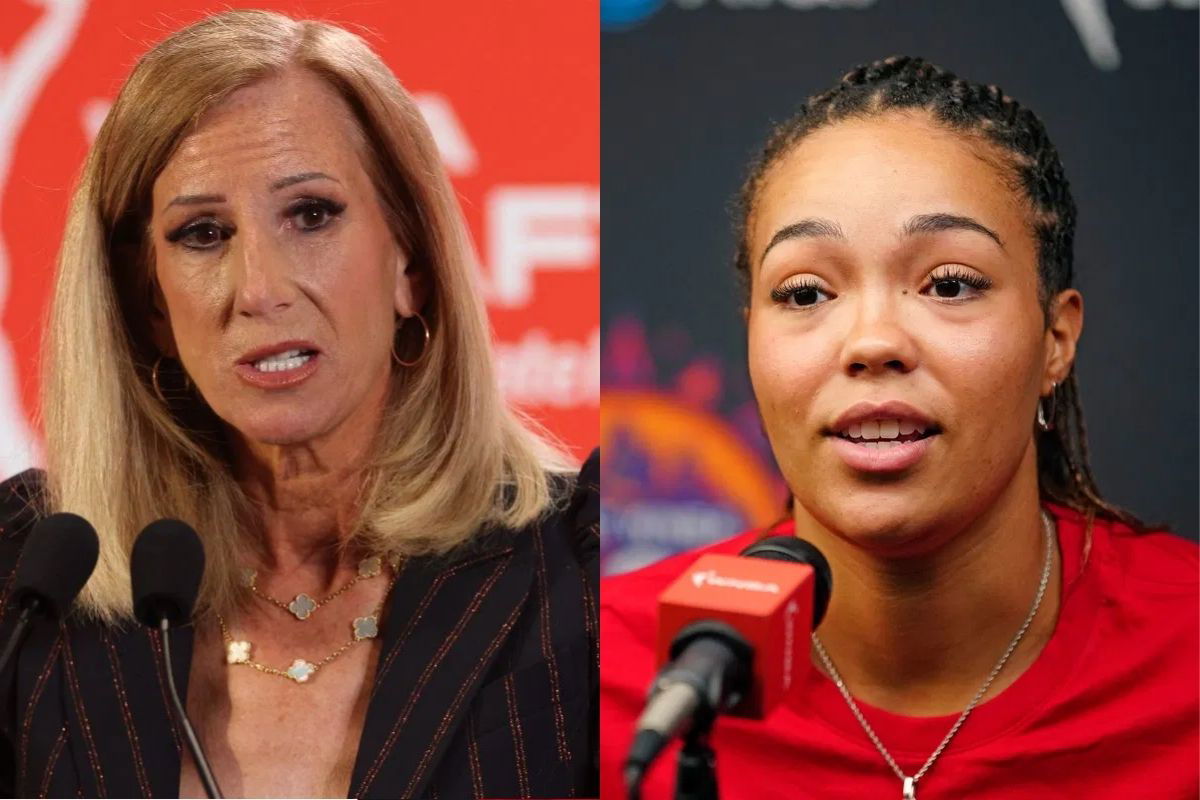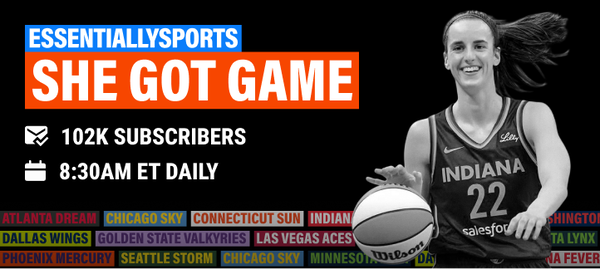
Imago
Image Credits: IMAGN

Imago
Image Credits: IMAGN

Imago
Image Credits: IMAGN

Imago
Image Credits: IMAGN
Unless you’ve been living under a rock, you know that Napheesa Collier didn’t hold back during her four-minute prepared draft speech, exposing WNBA Commissioner Cathy Engelbert and the league as a whole. With several other players and coaches backing her claims of “a lack of accountability from the league office,” the WNBPA VP jumped on board, supporting Collier while also sending a subtle warning to Engelbert ahead of the upcoming CBA talks.
Watch What’s Trending Now!
Breanna Stewart took to X to share her thoughts: she wrote, “Phee and I agree—what’s best for the players is best for the business. The W’s growth depends on valuing its athletes. The CBA is where commitment is proven—and where the future of our game is decided.” With only a month left for the current CBA agreement to expire, players believe they are nowhere near a new deal with the league.
Last year, the players’ union decided not to continue the current CBA, which was set to run until 2027. The deadline to reach a new deal is October 31. While the league and union could agree to extend the current agreement, like they did back in 2019, talks so far have shown a wide gap between the two sides, especially with new claims made by Collier.
Breanna Stewart has officially put out her own statement in response to Napheesa Collier’s four minute prepared speech from yesterday. pic.twitter.com/n3lQkw4isX
— Jackie Powell (she/her) (@ClassicJpow) October 1, 2025
The biggest issue for players in the new CBA talks is revenue sharing. You might recall them wearing “Pay us what you owe us” tees a few months ago—that summed up their demand: a fair share of the league’s revenue. Many misunderstood it as a call for equal pay with NBA players, but that’s not what they’re asking for. They feel the current system doesn’t give them enough of the WNBA’s growing profits. Linking salary growth to revenue would let players benefit directly from the league’s success.
Collier claimed in her statement that, “Whether the league cares about the health of the players is one thing, but to also not care about the product on the floor is truly self-sabotage.” And that’s where other important demands in the CBA come in: enhanced retirement with benefits, improved travel and facilities, support for family planning, and Prioritization Policy Revisions. However, players have made it clear they won’t accept any deal that doesn’t raise their pay.
Also, Stewart isn’t the only one who backed Collier’s claim of Cathy’s ignorance. “There’s been multiple proposals that have gone back and forth, and neither is close,” WNBPA first vice president Kelsey Plum said, as reported by The Athletic. “It feels almost the more that we have presented, the further away we are, which is just unfortunate. But at the end of the day, I think it’s just about the principle of not budging. And we have leverage, we have unity, we have a common goal, particularly in salary, and we’re just not where we want to be.”
A’Ja Wilson also sent a subtle warning to Cathy during her post-game press conference, saying she was “honestly disgusted by the comments Cathy made.” She made it clear she stands with Napheesa Collier, adding that while Collier has her own business priorities, the focus must remain on the players as the CBA negotiations move forward.
CBA talks heat up ahead of October 31 deadline
WNBA players have been consistent in their stance: the CBA talks don’t seem to be productive or helpful. During the All-Star weekend in Indianapolis, the first in-person meeting between the league and the players’ union was described by many, including union VPs Breanna Stewart and Napheesa Collier, as a waste of time. And with Collier’s statement, the league has been further put under the spotlight for the lack of accountability from the leadership.
With the current CBA deadline on Oct. 31, the stakes couldn’t be higher to find a common ground. If an extension is off the table, then other possibilities include a lockout initiated by owners or a strike from the players, though the WNBA has never lost games to a work stoppage—the closest it came was in 2003, when the draft and preseason were slightly delayed. The union has said it’s committed to staying at the table as long as necessary to secure a “transformational” deal that addresses salaries, revenue sharing, roster expansion, and league-wide workplace standards.
Money is at the heart of the negotiations, as explained by FOS. The WNBA’s media rights deal, valued at $2.2 billion over 11 years, and the league’s planned expansion to 18 teams by 2030—bringing in $250 million each from Cleveland, Detroit, and Philadelphia—mean the league is seeing significant financial growth. Yet under the current CBA, rookie contracts barely reach $80,000, while the league’s supermax salary is $249,244. The current salary cap only grows 3% annually, far below the NBA’s model, where players get roughly half of basketball-related income and the cap can rise up to 10%.
The numbers clearly justify the player’s frustration. And with the next state-of-the-league address from Engelbert set ahead of Game 1 of the WNBA Finals, the tension is high.


